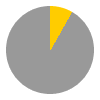- Save on trips down the Nile, Danube, Rhine & more
- Book river cruises for summer & winter 2025/2026
- Explore handpicked deals by season or river
Best time to visit Germany
Find the best time to visit Germany and plan your perfect trip in 2025/2026. Get holiday inspiration, weather guides, travel advice and find great deals.
- Best time to visit
- Weather by month
- 5-day weather forecast
- Destinations
- Travel advice
- Deals & discounts
Germany by month
Jan Feb Mar Apr May Jun Jul Aug Sep Oct Nov Dec
Recommended for Germany
Top Germany destinations
Below are the temperatures expected today at popular countries, regions and places in Germany. Select a destination to compare today's forecast with average weather conditions.
All Germany destinations
- Berlin
- Bonn
- Cologne
- Dresden
- Dusseldorf
- Frankfurt
- Freiburg
- Friedrichshafen
- Hamburg
- Hannover
- Kiel
- Leipzig
- Munich
- Nuremberg
- Rostock
- Stuttgart
- Westerland
When is the best time to visit Germany?
The best time to visit Germany (Berlin) is June based on the following average weather conditions.
Maximum daytime temperature = 72 - 86°F [remove]
Daily hours of sunshine = 10 hours or more [remove]
Change the criteria to reflect your weather preferences.
Max Day Temperature (°F)
- Jan
 36
36 - Feb
 37
37 - Mar
 46
46 - Apr
 55
55 - May
 66
66 - Jun
 72
72 - Jul
 75
75 - Aug
 73
73 - Sep
 66
66 - Oct
 55
55 - Nov
 45
45 - Dec
 37
37
Which is the hottest month in Germany?
The hottest time of year in Berlin, Germany is normally July. Expect maximum daytime temperatures to reach 75°F.
Which month has the most rain in Germany?
In terms of rainfall, June is usually the wettest month in Berlin, Germany with 2.8 inches on average. There are normally 14 days in June with some rain.
When is it sunniest in Germany?
The sunniest time of year in Berlin, Germany is normally August with bright sunshine on average for 47% of daylight hours; that's 7 hours of sunshine per day.
Best time to visit
The weather guide for Germany (Berlin) shows long term weather averages processed from data supplied by CRU (University of East Anglia) & today's weather forecast provided by meteoblue. Find out more about our data sources.
Metric (°C) | Imperial (°F)
Germany weather overview
Germany has a varied topography with a climate to match. Conditions can alter from day to day, year to year and region to region depending on which direction the weather fronts are coming: the sea or Continental Europe.
The Baltic Coast suffers harsher winters than the North Sea Coast. Baltic summers are warm and sunny but even the brightest summer days can be dramatically interrupted by thunderstorms. The North Sea coast enjoys the mildest winters in the whole of Germany except when the bitter east wind comes out to play. Rains can be heavy here in autumn but rain and storms from the Atlantic are possible at any time of year, so always have waterproofs with you.
Inland, the North German Plain, which houses Hanover and Berlin, shows small differences in weather between the west and east. In winter, the east is more exposed to the bitterly cold winds from Russia which are occasionally harsh enough to freeze canals and rivers. Summers are sunnier and less rainy than on the coasts: rain does occur but showers tend to be short, if intense.
In the central and southern hills, where Leipzig and Munich are situated, summer conditions vary from year to year: a good year brings long spells of sunshine but a bad year plagues inhabitants and visitors with lowering clouds and rain. Winter conditions vary according to altitude: the Bavarian Hills and Hartz Mountains experience long, snowy winters and the valleys surrounding them experience the occasional sharp frost.
Northern Rhineland is a major wine growing region even though winters can be cold and summers changeable. Overall, summer weather is predominantly warm with a fair amount of sunshine. The Upper Rhine Valley produces tobacco as well as wine, a tribute to its sunny summer climate which makes this region the warmest in Germany. Winters are another matter and can get very chilly but not as chilly as in the Bavarian Alps, Germany's most mountainous area and a centre for winter sports. Winters are crisp and snowy here and summers are fairly warm but very wet.
What to pack for Germany weather
Combine warmer clothes with lightweights in the summer and be prepared to wrap up well in the winter months. Take a raincoat if you are planning to visit the North Sea coast.
Germany travel features
Do you want to learn more about Germany? Read our latest features covering travel tips and insider destination guides on where to go and what to do in Germany.
Be inspired
Get your weekly fix of holiday inspiration from some of the world's best travel writers plus save on your next trip with the latest exclusive offers
We promise not to share your details
Related posts
Popular travel offers
Explore holidays in the sun for less
- Beach holidays
- Family holidays
- City breaks
- Summer holidays
- Winter sun holidays
- Holiday offers
- Top travel brands
- Airlines & flights
- Discount hotels
- Airport parking deals
- TUI
- Jet2holidays
- easyJet holidays
- Love Holidays
- January sales
Airport parking
- Manchester Airport
- Stansted Airport
- Bristol Airport
- Luton Airport
- Birmingham Airport
- Edinburgh Airport
- Gatwick Airport
- Glasgow Airport
- Newcastle Airport
Airport lounges
- Manchester Airport
- Birmingham Airport
- Bristol Airport
- Edinburgh Airport
- Glasgow Airport
- Heathrow Airport
- Newcastle Airport
- Stansted Airport
- Gatwick Airport











 TUI River Cruises
TUI River Cruises





















